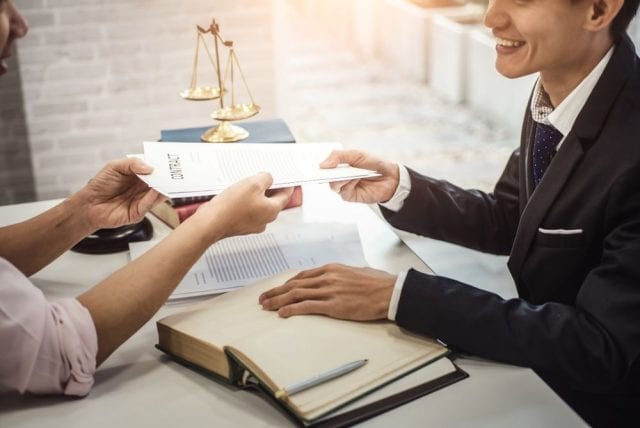
At some point in your life, you may want to meet with an attorney. If you’re the victim of a vehicular accident, if someone has wronged you out of money, or if you need to manage the logistics of a potentially messy divorce, only a professional attorney will be able to help you. However, if you’re not familiar with the legal system, or if you’re nervous about the initial point of contact, you might be confused about what’s expected of you, and how you should prepare.
According to Craig Swapp and Associates, most lawyers will offer a free consultation to discuss your needs. That way, you’ll get a chance to understand their rate, your chances in the pending court case (if applicable), and how they do business. Before that meeting, there are a few steps you can take to make things smoother.
Ask Your Attorney What to Bring
It may seem obvious, but many people don’t think to do it. Before your meeting with the attorney, ask them if there’s anything you should bring. After disclosing some high-level details about your case, they may ask you to bring specific pieces of information or evidence, or may not need you to bring anything at all. Follow your attorney’s lead here.
Fill Out Any Forms Accurately and Completely

Some law firms will request that you fill out a brief questionnaire, or a form before you meet with an attorney. This is partially so the firm can have a detailed record of your personal information for court documents and legal purposes, but it can also serve as a starting point for the consultation. Make sure you fill out these forms as accurately and completely as possible.
Get Copies of Medical Records, Receipts, and Other Pieces of Evidence
You’ll usually want to attend this initial meeting with as many pieces of evidence as you can gather. Depending on the nature of your case, that may mean getting a copy of your medical records, getting copies of your receipts and bank records, or even getting a copy of surveillance footage in a location where you were personally injured. If there are any barriers to you gathering this evidence, ask your lawyer before proceeding.
Obtain a Police Report, If Applicable
In any case, involving a personal injury or broken law, it’s important to get a copy of the police report associated with the incident. Police reports are meant to serve as unbiased, third-party documentation of the event, and they hold significant legal power. You should be able to get a copy of this by contacting your local police department.
Write Down Your Memories

In most cases, it’s beneficial to have a documented record of your memories. Over time, your memories may fade or become distorted, but if you have them written down, and written down early, they may be more reliable. Writing them down in advance of the meeting will also give you the chance to recover more details, so you can give your lawyer a complete report during your consultation.
Write Down Questions You Have
This is a chance for your attorney to get familiar with you and your case, but it’s also a chance for you to get familiar with your attorney. Before you attend, think up and write down any questions you have, such as:
- Experience and past – Is your lawyer appropriately licensed to practice law? Where did they go to school? Even more importantly, what kinds of cases have they taken on in the past? What is their win rate? These questions can help you feel more confident in your decision.
- Fees – Of course, you’ll also want to ask about fees. Some lawyers only take on cases they feel have a good chance of winning, and will only charge fees if they win the case. Others will charge by the hour, or charge a fixed fee for a specific service.

- Strengths and weaknesses of the case – Ask your lawyer what they think about the strengths and weaknesses of your case. What are your chances of winning? If you do win, what could you stand to gain? They may or may not be willing to answer these questions this early on.
- Processes and communication – How can you expect to communicate, moving forward? Different lawyers have different processes and preferences, so try to get a feel for what makes this lawyer unique.
Don’t be nervous before your first consultation with your attorney. This is a chance for both of you to get to know each other better and to determine whether this is a good fit. Being prepared can help the meeting go smoother, and allow you to walk away more confidently, but even if you show up empty-handed, you’ll have a chance to make up for it in the future.








